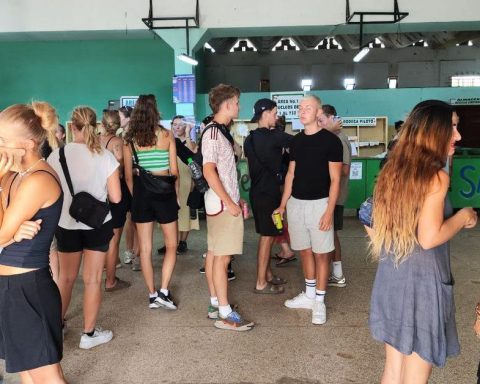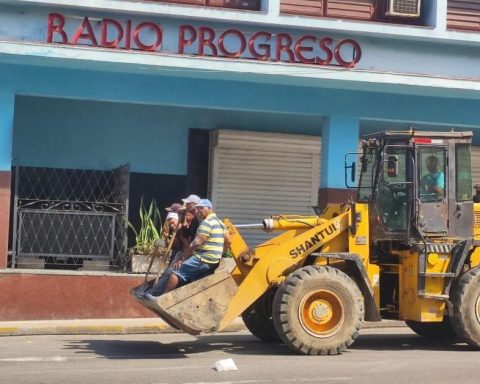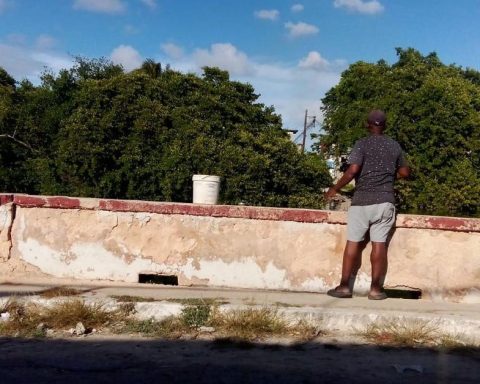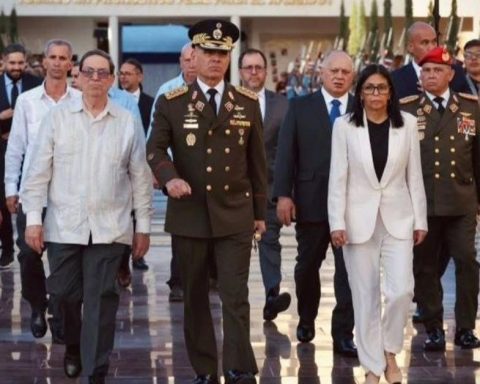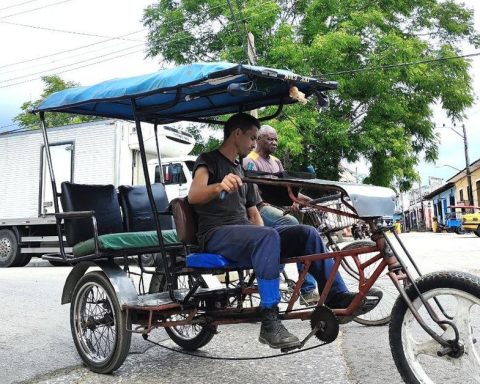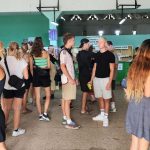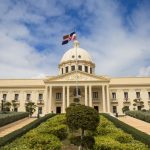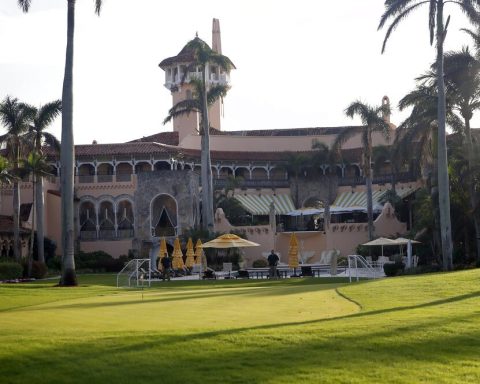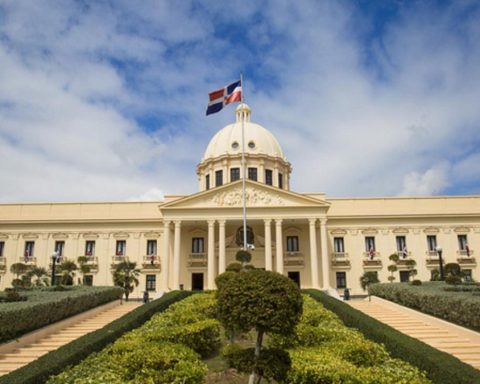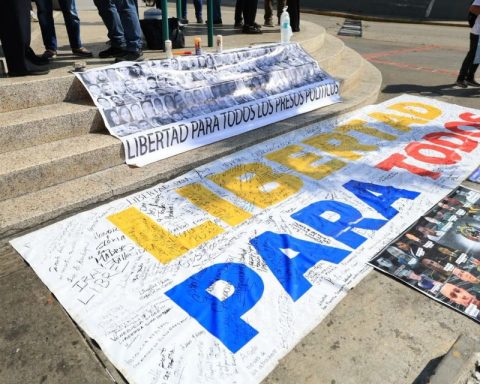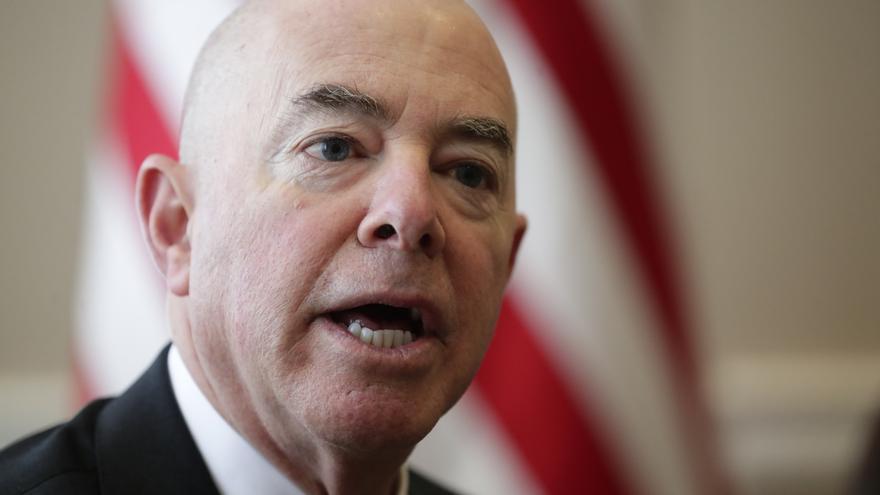
(EFE). -Cuba will address “important and decisive” issues with the United States in the round of migration talks that both parties are holding this Wednesday in Washington, according to the deputy director of the US Department of Foreign Affairs, Johana Tablada. The official declared that the delegation, headed by the Vice Minister of Foreign Affairs, Carlos Fernández de Cossío, will take on its agenda issues that “are concerns of the Cuban government and that have not been resolved.”
Among these issues, Tablada referred to “incentives” that remain for irregular emigration, such as “the continuity of extreme, inhumane, siege measures, which directly influence the socioeconomic living conditions of the Cuban population” and which make many Cubans seek to emigrate to the United States.
The Government of Cuba, Tablada added, blames the US government for “those high migratory flows, and those extreme measures that have provoked a direct threat to the well-being and livelihood of our population.”
The Government of Cuba blames the US government for “those high migratory flows, and those extreme measures that have caused a direct threat to the well-being and livelihood of our population”
“Regular migration will not be achieved, and this issue will not be ordered as long as this policy of suffocation against Cuba exists,” he said in statements reproduced by state media, although he acknowledged that “positive steps” were recorded last year, such as the resumption of visa issuance at the US consulate in Havana and the granting of the visas established in the migration agreements.
The island’s delegation will also denounce “the admission of people who arrive irregularly to the United States,” which it considered “an encouragement for others to adopt this unsafe path,” and cited the case of Rubén Martínez Machado as an example, who fled to Miami in a state plane and has received political asylum in the US, an “explicit breach of immigration agreements” and a “danger to aviation security,” he said.
Cuba will also reiterate its request that the programs for the granting of non-immigrant visas be restored so that the citizens of the Island can visit their relatives in the United States.
This migratory round will take place marked by a sharp increase in the arrivals of Cubans to the US coasts, where the Coast Guard has intercepted nearly 5,000 Cuban rafters since October.
The serious economic crisis in the country has intensified an unprecedented massive migratory exodus, especially to the United States, where its authorities detained more than 313,000 Cubans on the southern border with Mexico, which represents about 3% of the total population of Cuba.
Within this framework, the Secretary of National Security of the United States, Alejandro Mayorkas, held a meeting in Panama with the foreign minister of that country and that of Colombia and Panama to discuss the migratory crisis through the dangerous Darien jungle. From there he insisted that the migrants must take advantage of the “legal channels” or they will be “returned” to the other side of the border.
Mayorkas insisted that the migrants must take advantage of the “legal channels” or they will be “returned” to the other side of the border
“There is a very important message to send in addition to the fact that we are building legal roads so that people do not have to risk their lives in the Darién and that is that we are enforcing our laws at the border,” the secretary remarked.
“It’s so tragic to see people risk their lives, take the perilous journey, suffer the trauma, put their life savings in the hands of traffickers who only seek their own profit, only to be returned,” said Mayorkas, originally from Cuban.
The Darién jungle is one of the most dangerous border crossings for irregular migration, where the harshness of the journey having to cross swollen rivers is compounded by attacks by armed men, who rob and rape, in addition to the lack of drinking water being contaminated by excrement and corpses.
Most migrants, leaving the jungle exhausted, breathless, repeat one word: “sorry” for having taken that route, calling on their compatriots to choose another option, to no avail.
This year alone, some 400,000 migrants are expected to cross the jungle, almost double the more than 248,000 who did in 2022. In the first three months of 2023 alone, some 87,390 migrants crossed the Darién, seven times more than the same period of 2022.
“And those are the individuals, the human beings who survived to tell the tale of the trauma of the trip. We also think of the people who didn’t make it. That’s exactly why we’re building legal pathways for them to come to the United States safely. and orderly in search of a better life,” he explained.
Mayorkas highlighted as “the most powerful example of success” of this legal path the creation of the program for nationals of Cuba, Haiti, Nicaragua and Venezuela, a measure that he recently revealed led to a 95% reduction in the arrests of individuals from these countries in border.
“We have already received thousands and thousands of people in this way,” he said. A program that can reach 30,000 humanitarian permits per month, “360,000 people a year”
“We have already received thousands and thousands of people in this way,” he said. A program that can reach 30,000 humanitarian permits a month, “360,000 people a year.”
The US official also warned that they are “expanding” legal avenues. “We will be revealing in the coming weeks the additional pathways that people should take,” he announced.
The Secretary of Homeland Security also recalled that migrants have other ways to legally travel to US territory, such as visas for seasonal workers, or for agricultural or non-agricultural workers for limited periods to “earn money legally and send remittances”.
In addition, next month the Government of President Joe Biden will lift the controversial Title 42, a health measure imposed by the Government of former President Donald Trump (2017-2021) that allows the hot expulsions of migrants at the border.
“We are concerned that there may be an increase in the level of migration” due to the lifting of that measure, Mayorkas acknowledged, but his advisers recalled that the basis of the country’s immigration law, which is contemplated in Title 8, will continue to be fully in force.
During his meeting with EFE, Mayorkas was accompanied by Samantha Power, administrator of the US Agency for International Development (USAID) and former Washington ambassador to the UN, who highlighted the important role played by countries that were initially going to be only transit for migrants.
In Colombia, he stressed, “more than two million Venezuelans” are settled and it is “a very important and very commendable decision” that the Colombian authorities have offered them “temporary protection status.”
In Colombia, he stressed, “more than two million Venezuelans” are settled and it is “a very important and very commendable decision” that the Colombian authorities have offered them “temporary protection status.”
“When that happened, USAID was quick to support the Colombian government to set up that system, the registry, the mechanism, but also to support the Venezuelans coming in to make sure they didn’t overburden the communities,” said Power, who He remarked that they are dedicating “more than 200 million dollars a year” to this task and seek to increase 34 million.
The US official insisted that it is the “responsibility” of the United States to come to the support of those countries south of the Darién, such as Colombia, but also Ecuador or Peru, “which are doing everything possible to absorb these populations” of migrants.
For Mayorkas, the need to have to leave his country for political or economic reasons is not something alien. A native of Cuba, he came to the United States with his parents and sister as “political refugees” when he was a child. “It was the second time, by the way, that my mother was a refugee,” after having fled from the Nazis in Europe.
“I understand very well the fragility of life, the vulnerability of people, the importance of humanitarian aid, and at the service of that fragility, at the service of that vulnerability, we create legal channels and urge people not to take such a risk. expensive. But it is also very important to remember that we are not alone in this. That the migratory challenge that our region is experiencing is a challenge that we must all respond to together,” he said.
________________________
Collaborate with our work:
The team of 14ymedio He is committed to doing serious journalism that reflects the reality of deep Cuba. Thank you for accompanying us on this long road. We invite you to continue supporting us, but this time becoming a member of our newspaper. Together we can continue transforming journalism in Cuba.
